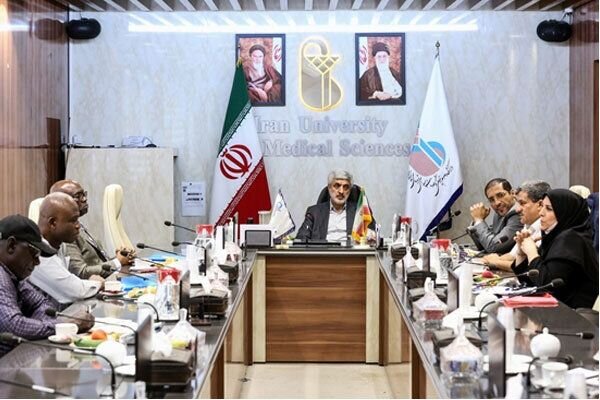Advanced clinical training center to be set up in Ghana

TEHRAN – Iran University of Medical Sciences (IUMS) has issued a permit for establishing an advanced clinical training center for nursing and midwifery courses in Ghana.
The center will start admitting students in the next [academic] year, Mehr news agency reported.
In September 2022, Health Minister Bahram Einollahi signed an agreement in principle to establish the IUMS branch in Ghana.
Establishment of IUMS branch in Ghana
Officials of IUMS and Ghana Tertiary Education Commission (GTEC) held a meeting in Tehran in September to finalize the establishment of the IUMS branch in Ghana.
Abdolreza Pazouki, the IUMS president; Mohammed Salifu, the head of GTEC organization; Hafiz Adam Taher, the director of External Health Cooperation at the Ministry of Health of Ghana; and Al-Hassan Emil Abdulai, the vice chancellor of Tamale University, discussed the capacity of academic cooperation between the two countries, Mehr reported.
Pazouki, referring to the position of the IUMS in the international rankings, welcomed the collaboration with Ghana by dispatching a medical team in the specialized field of laparoscopy to that country.
Mehdi Moqtadaei, the IUMS vice president for international affairs, explained the admission process of two thousand foreign students, saying these students are from different countries, including India, Pakistan, Iraq, Afghanistan, etc.
He added: “The admission of students in Ghana will begin with nursing and midwifery courses at the bachelor's and master's levels.”
The Ghanaian delegation lauded the capacities and capabilities of the IUMS, expressing willingness to use Iranian technology to develop Ghana’s health sector.
Referring to health tourism, they stated that Ghana is trying to achieve independence in the health system.
Health attaches in Africa, Latin America
On July 16, Einollahi said, “Iran is planning to send special envoys as health attachés to certain countries in Africa and Latin America.”
“We have negotiated with the Ministry of Foreign Affairs regarding the appointment of health attachés in the embassies of some countries with whom we cooperate in the fields of medicine, medical equipment, science and technology, and exchange of professors and students.”
“Health attachés are appointed in six countries in the first phase, including South American and African countries. We are also following up on dispatching health attachés in neighboring countries,” IRNA quoted Einollahi as saying.
“The issue of medical tourism is very important. Therefore, countries that have extensive relations with us in the field of health diplomacy will be given the top priority,” he noted.
Health diplomacy
In July, Einollahi said health diplomacy is one of the areas that are able to deepen relations between countries in the region.
There are many common issues for cooperation in the field of health between countries, he said, adding that the government's strategy is to strengthen foreign policy, especially with neighboring countries, IRNA reported.
Einollahi said in April that many countries in the region are asking Iran for help with issues related to health.
In May, Iran hosted the 26th G5 High-Level Experts Meeting on Health Cooperation and the 1st Healthcare Leadership and Governance Training Program.
G5 countries (Afghanistan, Iran, Iraq, Pakistan, plus the World Health Organization) have taken part in the meeting with the theme of “Joint Work for Solving Joint Health Problems.”
Addressing the opening ceremony, Einollahi referred to the unity and cooperation of the countries in the fields of health, treatment, and medical education as a historical necessity.
Achieving, maintaining, and promoting health is never possible in a regional way and does not happen in an isolated region, but requires the cooperation of countries, especially neighboring countries, he stressed.
“To develop health in the countries of the group of five, we must look at health collectively and think about creating and promoting health in all countries.
MT/MG
Leave a Comment